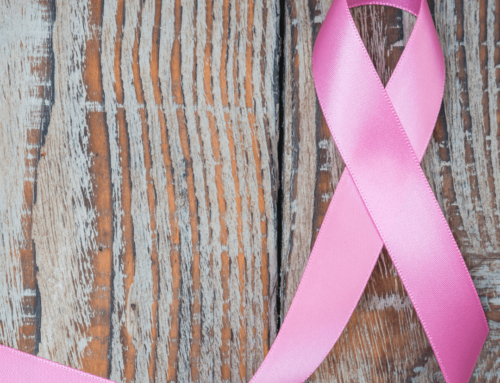Understanding breast cancer and men

When Graeme Comrie received his breast cancer diagnosis in 2009, it came as a shock for several reasons. At the age of 64, he had been leading a healthy lifestyle, he did his medical check-ups regularly, and lastly, he never thought that – as a male – he could be diagnosed with breast cancer. “One day I discovered a small lump in my left upper breast but I didn’t think much of it. I did not do anything about it for about two years until my doctor suggested that I have it tested. I took her advice and the results came back positive – I had breast cancer!” he remembers.
Fortunately for Graeme, the doctors were able to remove the cancer surgically and he now lives to tell the tale.
“14 years later, I am still cancer-free,” says Comrie. “I am incredibly grateful that surgery and treatment worked.”
Early detection of breast cancer is men is imperative as that vastly improves the chances of surviving any type of cancer.
Graeme’s advice:
“If you suspect a problem, contact or talk to your GP and if you do annual medical checkups, make sure that the medical includes a breast examination together with the routine bloods etc.”
Some frequently asked questions are below:
Do men get the same types of breast cancer as women?
The most common type of breast cancer seen in men is infiltrating carcinoma. This is cancer that has spread beyond the cells lining the ducts in the breast. It is the most common type of breast cancer in women as well as men. All other forms of breast cancer are exceedingly rare in men.
What are the possible causes of breast cancer in men and does this include a family history?
It is estimated that cancer-causing genetic abnormalities are at least 2 – 4 times more common in males with breast cancer than in females. Genetic testing has therefore become part of routine care in males with breast cancer. Other risk factors include exposure to radiation, and having a disease related to high levels of oestrogen in the body, such as liver disease or other genetic disorders.
How would breast cancer be detected in a man?
Men with breast cancer usually have a lump that can be felt (as in Graeme’s case). Men’s breasts are not usually as big as women’s and a mass is therefore more easily palpated by a man. Medically, a biopsy is performed in order to make a proper diagnosis. This involves the removal of cells or tissue fragments so they can be viewed under a microscope by a pathologist to check for signs of cancer. It is usually done by taking a small core of tissue using a needle under local anaesthesia.
What are the treatment options?
Treatments for breast cancer in men and women are generally the same. Many men benefit from a combination of different treatments:
- Surgery. The typical treatment for men is a mastectomy, in which the entire breast is removed. Breast-conserving surgery — in which just the tumour is taken out — isn’t usually possible as men don’t have much breast tissue to begin with. The surgeon will also take out one or more of the lymph nodes for pathologic examination to assess if the cancer has spread.
- Radiation Therapy. Radiation is used commonly after surgery for breast cancer in men, as these tumours are often advanced and without radiotherapy, there is a high chance of recurrence.
- Chemotherapy. This is treatment with drugs — either taken by mouth or by injection — that attack cancer cells. Chemotherapy is often used after surgery to lower the risk of the cancer coming back. For men with advanced cancer or cancer that has spread to other parts of the body (metastatic cancer), chemotherapy may be the primary treatment.
- Hormonal Therapy. Some kinds of breast cancer need certain hormones to grow. Hormonal therapy blocks the effects of these hormones, choking the cancer. Sometimes, removal of the testes or suppression of their function by drugs is used to reduce the amount of certain male hormones in the system. Men with breast cancer should never take testosterone. Hormonal therapy is often used after surgery to lower the risk of the cancer coming back. For men with locally advanced or metastatic cancer, it may be the primary treatment.
- Biological Therapy. This is a new approach. Some men have an excess of a protein that makes cancer spread quickly. Herceptin is a drug that’s been approved to treat metastatic breast cancer. It stops this protein from making the cancer cells grow. It may also boost your immune system, giving it more strength to fight the cancer itself.
If a man is diagnosed with breast cancer, does this increase the chances of his daughters and sons developing cancer?
If a disease-causing genetic abnormality is found, the risk of cancer in children affected by the same mutation is increased. Due to the rarity of male breast cancer, however, it is not known whether the children of men who have breast cancer and where there is an absence of family history or they have tested negative in a panel of genes that are related to an increased risk of breast cancer is increased.




